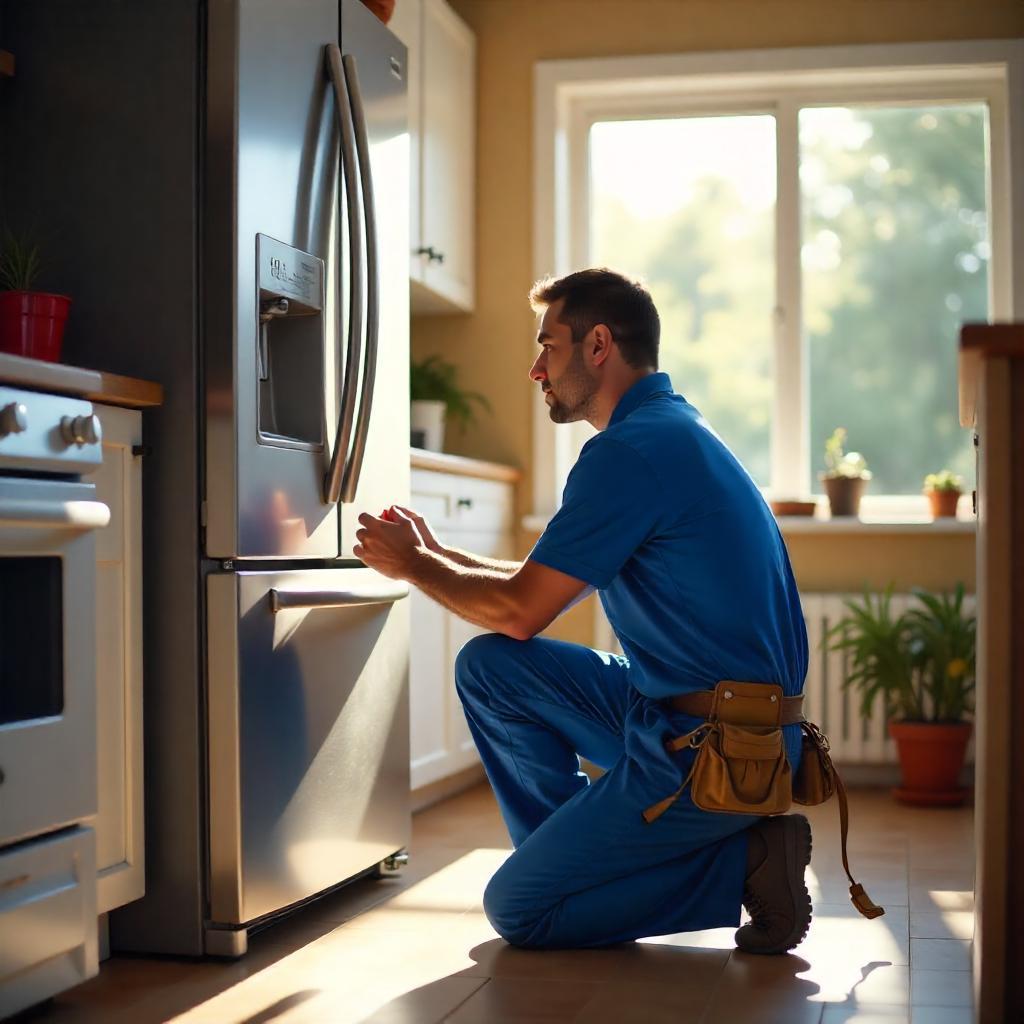Notifications

4 minutes, 40 seconds
-127 Views 0 Comments 0 Likes 0 Reviews

Refrigerators are the unsung heroes of our kitchens—quietly preserving food, keeping drinks cold, and making life more convenient. But when they stop cooling properly, it can lead to spoiled groceries and unnecessary frustration. If you’ve ever asked yourself “refrigerator not cooling”, you’re not alone. In this article, we’ll explore why your refrigerator might not be keeping things cold and offer practical solutions to help you fix the problem before calling in the professionals.
Before diving into more complex issues, it’s best to start simple. Sometimes, the thermostat setting may have been accidentally adjusted—either by a child, during cleaning, or while shifting groceries.
Check your thermostat setting.
The ideal fridge temperature is between 37°F and 40°F (3°C to 4°C).
For freezers, it should be 0°F (-18°C).
Your refrigerator works by circulating cold air. If that airflow is blocked, cooling will be uneven or nonexistent.
Overstuffing the fridge with items right up against the air vents.
Blocking the fan vents, which are crucial for proper circulation.
Rearrange items to allow better airflow.
Keep a 1–2 inch space around all internal vents.
Condenser coils release heat from the refrigerator. When these coils are covered in dust or pet hair, they can’t function efficiently, leading to poor cooling.
Unplug the refrigerator.
Locate the coils (usually on the back or underneath).
Use a coil brush or vacuum to clean them every 6 months.
Refrigerators typically have two types of fans: one near the compressor (condenser fan) and one inside the freezer (evaporator fan). If these fans stop working, your fridge won't cool properly.
Loud or unusual noises.
Fridge compartment warm while the freezer is still cold.
Open the fridge and freezer while the unit is running.
Listen for fan noise. No sound may indicate a broken fan.
Replacement requires basic tools but might be best handled by a technician.
If your refrigerator has a frost buildup in the freezer, it could mean the defrost system isn’t working correctly. This leads to blocked airflow between the freezer and fridge compartments.
Manually defrost the fridge by unplugging it for 24–48 hours.
Check if the cooling returns to normal after restarting.
If the problem persists, the defrost timer, thermostat, or heater may need replacement.
The compressor is the heart of your refrigerator. If it fails, the whole cooling system stops.
Constant clicking noise.
Fridge is warm, and the compressor is either silent or extremely hot.
Compressors are expensive and complex to replace.
If suspected, it’s best to call a certified repair technician.
Understanding what causes refrigerator to stop cooling is the first step toward solving the issue. While some problems can be fixed with a quick clean or setting adjustment, others might require professional help.
A refrigerator is a long-term investment that plays a crucial role in our daily lives. Regular maintenance—like cleaning the coils, not overstuffing the shelves, and checking settings—can keep it running smoothly for years.
refrigerator not cooling what causes refrigerator to stop cooling

